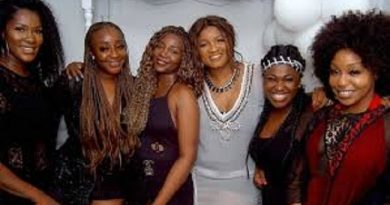Yes I Talk From Both Side Of My Mouth So What? – El-Rufai
It is not in his character to be tame or modest. On that note, Malam El Rufai did not surprise. There is something intrinsically disturbing about the Kaduna State governor’s penchant for attention.
He seems to be banging his shoes like a public desperado. He is like Oscar, the character in Gunter Grass’ Nobel Prize-winning novel, Tin Drum. He shatters glasses when he screams. Like Oscar, El Rufai is the smallest in the room but his voice equals anarchy. He has become the Nigerian Napoleon without the heroics or exploits.
So, he did it again. He employs a rhetorical decoy. He wants to appear to be indicting his region, and so appear a nationalist or patriot. The great writer Samuel Johnson probably had the likes of him in mind when he described patriotism as “the last refuge of the scoundrel.” There were many false nationalist in Johnson’s Europe that boiled and cooled simultaneously as nations formed and dissolved in his time. So, El Rufai says the north is poor while the south is better endowed. But he cancels that out by stirring northern irredentism. He says the north is honest, implying that the south signifies duplicity.
By that very double face, El Rufai committed what psychoanalysts call a Freudian slip. He articulated clearly what he thought he was doing in opaque words. There are far too many people who cannot be conned, not least a person like this writer who knows enough about the nuances of language like anybody on earth. He was trying to achieve two things at the same time. He wanted to appear as an authentic Nigerian while retaining his quintessence as Fulani warrior. In doing both, he failed, and achieved neither.
He feigns the rhetoric of brutal honesty in a camouflage of conciliation, and a camouflage of conciliation under a rhetoric of brutal honesty. He wants to show he loves the north and south, while saying at the same time he loathes the north and south. It makes him lukewarm, neither left-handed nor right-handed, neither hot nor cold, what the God of the Bible says he would spew out of his mouth.
Those who know him see the root of this divisive language. He is eyeing the top post in the land. He wants to also sort of pacify those who excoriated him for overstepping the miry earth of Lagos politics. He wants to play godfather while trying to behead him. He was dazed by the backlash, and now the fellow has spun a cobweb for himself by trying to be a northern authentic without undermining the south, which he must embrace in order to gain traction in the 2023 sweepstakes.
But this man threw stones without shielding his glass windows. In pushing the divisive aspect of his words, he forgot that he has been a divider in chief in Kaduna politics. Was it not the fellow who dared the Christian by flushing out his Christian deputy and projecting a Muslim-Muslim ticket in a time when the state citizens are on the opposing sides of the holy books?
Was it not El –Rufai, who became a master statistician when the Fulani herdsmen and the Christian neighbours were locked in a blood duel. It was like the conflict that Spanish playwright Federico Lorca wanted to resolve in his masterwork Blood Wedding. The two Fulani and their neighbours are locked in a sort of blood wedding because Kaduna is their wedding scene but only bloodshed separates them. Yet rather than bring love and marriage, he stirs passions and buries petals in blood.
He has been unable to make himself a man of the people, and to win an election as he did never made him a beloved. He is a cynical politician who knows how to exploit the foibles of a slight majority to win an election. That is the sort of crisis in the west today. Conservatism has been redefined by demagogues and wayfarers of dark impulses. They appeal to barbarian fears and tribal fantasies. They win just enough votes to make the society miserable.
The crisis of Brexit today in the United Kingdom is fraying the nerves of the first great modern liberal state. Now, they are hoisting fears rooted in their natal past. Theresa May is the second prime minister victim of the fear of Europe, and blacks, and Muslims, and Asians. They want to hide in their own sewer. Boris Johnson will take over without any specific idea how to free Britain from the joy of a united world. He is likely to meet a deadlock, and put his country in a web of negotiations without a solution.
El Rufai indicted the northern elite when he said his region has fallen far behind the south in poverty, education and other indices of development. He should know that he has been part of the pampered elite in the past two decades. He has been a stoker of bonfires of backwardness. He should have gone further to name all the men who made this happen.
He is a feudalist who is pretending to be a democrat. He has fattened on the spoil of this decadent ideology, and he will do well to name himself as one of that privileged men who would not trade the marble palace for a pigsty comfort with talakawas. That is the hypocrisy of the age.
The Kaduna State governor ought to understand that he cannot hoodwink Nigerians with his rhetoric of hate. We have seen through him. He cannot show that it is not actuated by presidential ambition. The nation does not crave men who divide at this time of ethnic incineration. He worked in the shadows when Buhari plotted himself as his replacement in case the worst happened. So, we know the ambition is is still alive, and so is his hate.
Hail to the Duke
Many call him the Duke. I do, too. Nduka Obaigbena first popped into my consciousness as student in Government College, Ughelli. He had brought a famous musical group known as Osibisa to perform on campus. Who was this student as entrepreneur? I did not know him in person. I just wondered at his audacity. Later, his cartoons known as Lekeleke flourished in The Nigerian Observer. The cartoons had a mordant, irreverent tone. He was my senior at Ughelli, and I forgot about him until I learned he was already working with the world-famous Time magazine, posting Nigeria as spotlight. That was followed by a dramatic magazine called Thisweek, with the line “The world according to Nigeria This week.” It was journalism as innovation. He called it “a generational statement.” It was also the golden age of the magazine. He brought together some of best and brightest in the journalism firmament. And some of the best investors and technocrats from Gamaliel Onosode to Chief Hope Harriman. It reigned for a while, and beautiful was that reign.
Some thought he was done. Then came Thisday, a newspaper of innovation, and it has projected a distinct voice, even if not always salutary to some. He has brought a panache to journalism, the back page, the aesthetics, the front page as advert, the gloss on Sunday, the vision of the newspaper as not merely a newspaper but a communication organism. He has his flaws, but Obaigbena is a rare spirit in this generation, who has embossed journalism with milestone acts that few can equal. He just turned a young 60, and I say sixty cheers to a genius.




